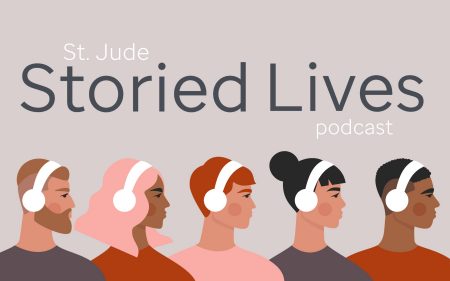
No Boston Marathon to run, so a St. Jude Hero rounds up his family for a neighborhood relay-style race
Scott Kruse had qualified for his first Boston Marathon, but then the world changed and the global pandemic put a halt to large gatherings. But a hero’s got to be heroic in these times. So Kruse, forced to walk, not run, for exercise these days because of a back injury, had an idea.
Scott Kruse had qualified for his first Boston Marathon, not as a fast runner but as a prodigious fundraiser: A select number of spots are reserved every year for a team of St. Jude Heroes, who are required to raise a minimum of $10,000 each.
Kruse blew by that amount. He was at about $38,000 when the world changed, when the global pandemic put a halt to large gatherings.
For a first-timer in the famed race, it was like Heartbreak Hill, without the hill.
But a hero’s got to be heroic, even in these times. Or especially in these times. So Kruse, forced to walk, not run, for exercise these days because of a back injury, had an idea.
He’d bring the spirit of the Boston Marathon to his Dexter, Missouri, neighborhood. He’d recruit his wife Kerri and daughters Addie, 20, and Andie, 16. And they’d all walk, relay style — with a paper towel roller for a baton.

“I thought, holy cow, if we could just set a number,” he said, “and it ended up being a marathon, that would be so cool.”
So one day last month, Kruse donned a St. Jude T-shirt and cap. He walked about five miles, then logged his mileage in chalk in the driveway. Then Kerri walked about five miles. Then Addie and Andie took their turns. From there, they all just rotated until they’d reach a collective 26.2 miles.
“Then we challenged another family,” he said.
In the weeks since, at least seven other families have staged their own version of the “COVID-19 Family Marathon Relay.”

Kruse’s only regret is that he didn’t turn it into a fundraiser for St. Jude. It just didn’t seem right, given the toll the pandemic was taking on families and the economy.
Instead, he’s raising awareness while biding his time before resuming his St. Jude Hero fundraising for the Boston Marathon, rescheduled for Sept. 14.
“If we get a glimpse of normal, I want to push my goal to $50,000,” he said. “I haven’t asked anybody for a donation since this thing started. It’s just so on-hold. I feel like people would probably still donate, but I just think I’ll gain more ground later, by holding off.”
If you’re wondering about Kruse’s devotion to St. Jude — which includes being a veteran of five St. Jude Memphis Marathons — well, he has a story about that.
Back in late 2006, Andie got very sick. It started with a stubborn cold, and a visit to the pediatrician that “went south in a hurry.” Their doctor brought in other doctors, worries mounted, and a consensus formed: It looked like the 3-year-old girl had leukemia. Her clinical team referred her to St. Jude and she and the family were soon St. Jude bound.
They arrived at 11:30 p.m. on a Friday and met with doctors until 2:30 a.m. A bone marrow test on the following Monday would tell them if it was leukemia.
“Every church in town (back home in Dexter) was praying hard,” he said.
That Monday, he said, their doctor said the family had received “a Christmas miracle” — Andie didn’t have leukemia, after all. Instead, she tested positive for mononucleosis and the Epstein-Barr virus, from which she would recover.
So after three nights at St. Jude, the family got to go home with “a wonderful memory and a wonderful story.”
When Kruse looks back at the family’s brief stay at St. Jude, what sticks with him isn’t just the unexpected diagnosis they received, but how they were so immediately and completely embraced.
The family still has Andie’s patient bracelet; they put it on the family Christmas tree every year. And Kruse carries in his wallet the card that served as the room key for their patient housing facility and their meal card — a reminder that St. Jude is a place where families never receive a bill, a place where the majority of funding comes from donations.

“Stuff like that sticks with you, and stuff like that is the reason you just want to keep giving,” he said. “It never leaves us.”





